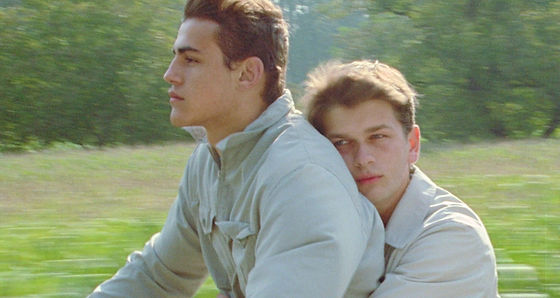A Reflection of Youth and Change in Wild Reeds
Wild Reeds (Les Roseaux Sauvages), directed by André Téchiné and released in 1994, is a poignant coming-of-age drama that captures the emotional turbulence of adolescence against the backdrop of political and social change in early 1960s France. The film is widely regarded as one of Téchiné’s finest works, praised for its nuanced character studies, lyrical storytelling, and delicate handling of themes such as identity, sexuality, and ideological conflict.
Set in the summer of 1962, shortly after the end of the Algerian War, Wild Reeds unfolds in a rural boarding school in southwest France. The narrative centers around four teenagers—François, Maïté, Serge, and Henri—each grappling with personal transformations and ideological awakenings. François, an introspective and academically gifted student, gradually comes to terms with his homosexuality. His best friend, Maïté, a politically conscious daughter of a communist teacher, is quietly in love with him, complicating their relationship. Serge, a handsome and confident young man from a working-class background, becomes the object of François’s affections, though his own feelings remain ambiguous. Finally, Henri, a recently arrived French Algerian (pied-noir), introduces political tension into the group, holding strong anti-communist views and clashing with Maïté both intellectually and emotionally.

What sets Wild Reeds apart from typical coming-of-age films is its quiet, observational tone and its refusal to sensationalize. Téchiné crafts a deeply human portrait of adolescence, showing how political ideology, sexual awakening, and emotional insecurity intertwine during a time of personal and national uncertainty. The film subtly explores the effects of the Algerian War on French society, not through the battlefield but through the classroom, the family, and the budding ideologies of youth.
The cinematography by Jeanne Lapoirie enhances the film’s introspective mood, using natural light and lush rural landscapes to mirror the characters’ emotional states. The use of silence and music is particularly effective, heightening the emotional resonance without overwhelming the narrative. Dialogue is spare and realistic, often suggesting more than it says outright.
Performances from the young cast are uniformly strong, with Gaël Morel as François delivering a particularly sensitive portrayal of adolescent vulnerability. Élodie Bouchez, as Maïté, provides a restrained but emotionally rich counterbalance. Stéphane Rideau and Frédéric Gorny, as Serge and Henri respectively, bring energy and complexity to characters that could have easily been reduced to stereotypes in less careful hands.
Wild Reeds is not merely a story about teenagers discovering who they are; it is also a meditation on the fragility of ideals and the necessity of change. The title itself, referencing a fable by La Fontaine, alludes to the resilience and flexibility required to endure life’s storms. Téchiné presents adolescence not as a romanticized moment of freedom, but as a crucible of identity shaped by both personal longing and the forces of history.
In its quiet elegance and emotional honesty, Wild Reeds remains a landmark of French cinema and a rare film that captures the elusive moment where youth meets the complexities of the adult world.


